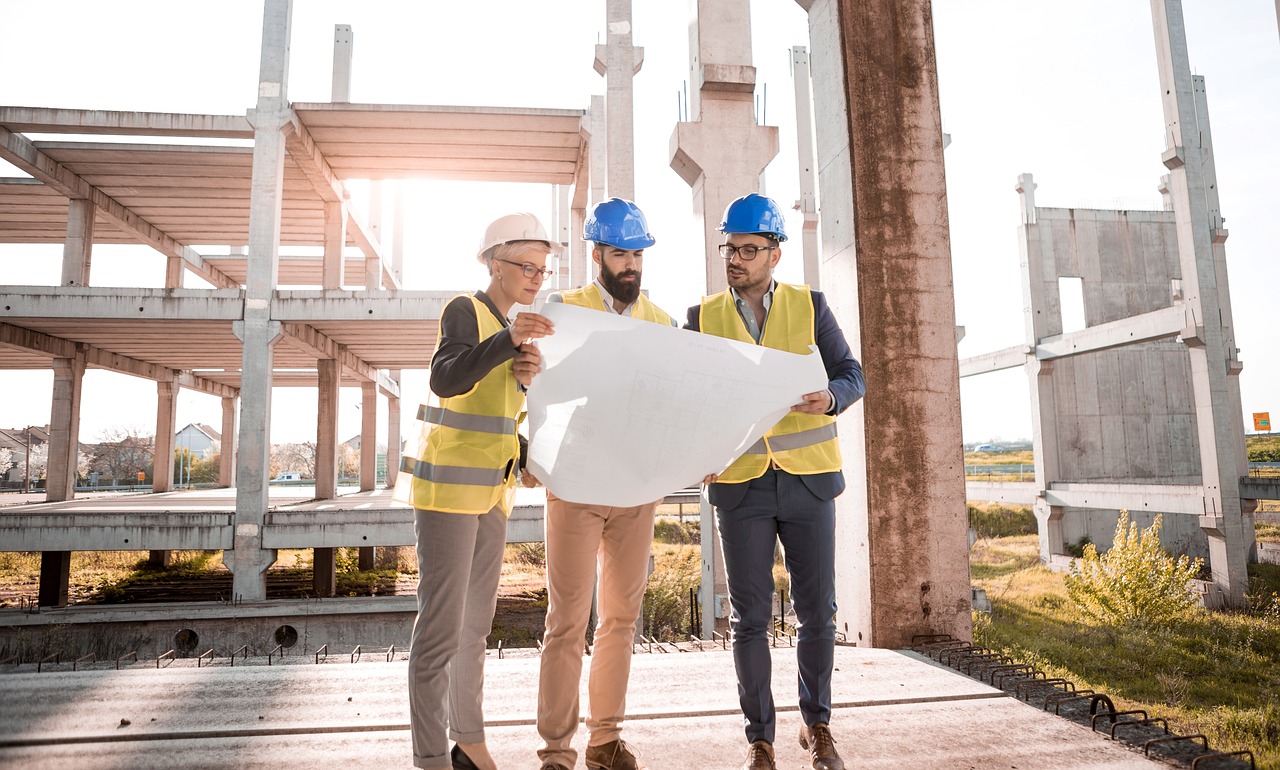 Construction businesses usually start as a small operation—a craftsman launches their own business because they know they have the skills and can provide an in-demand service. Once the business can take on more projects and becomes profitable, the owner has to hire more and more people to accomplish the work. Pretty soon, what was once a one-person operation is now a company that needs a leadership structure and administrative staff.
Construction businesses usually start as a small operation—a craftsman launches their own business because they know they have the skills and can provide an in-demand service. Once the business can take on more projects and becomes profitable, the owner has to hire more and more people to accomplish the work. Pretty soon, what was once a one-person operation is now a company that needs a leadership structure and administrative staff.
If your construction business currently fits this description, and you need to hire or reorganize your employees, you need to determine which job positions to create. Though every business is different and some employers work better with a slightly different employee structure, most construction businesses need to fill the following roles on top of the manual laborers who complete the actual building.
Table of Contents
1. Project Manager
Project managers are in charge of overseeing everything that happens during a construction project. They must ensure that all phases of a construction project are completed on time and within the budget. The project manager works directly with architects and engineers to figure out timeline projections, estimate costs for materials and labor, and develop overall construction plans.
Project managers act as the conductor of all the moving pieces within a construction business. They organize and plan to ensure the team completes on time and that different crews have everything they need. They figure out what has to happen before the next team can come in to do their part. They also work with the client so that everything is acceptable both by the city inspectors and the client.
2. Surveyors
A building or construction surveyor is responsible for staking out where the building will be. They also deal with permits, making sure the structure will adhere to all city and state laws. Your construction business will also need a land surveyor who studies the land boundaries.
Surveyors are necessary for your projects because they help determine where each section of the structure will go on land plots. They take exact measurements and map out a grid of the land to let everyone know where certain structure elements will go. Knowing these measurements helps ensure that the building is sound and doesn’t go over any boundary lines.
3. Cost Estimator
The cost estimator is the master of all things money-related on your projects. They are in charge of obtaining bids from vendors and subcontractors, keeping track of the prices agreed upon, negotiating prices, identifying quality subcontractors, and maintaining the cost keys and price masters.
The cost estimator makes sure that you and your clients know the project’s projected and actual costs, often using software for commercial job construction pricing and bidding for the most accurate figures. With this software, your cost estimator can break down prices by material, by section of a project, or even by square footage.
4. Construction Administrator
The construction administrator typically takes care of all the paperwork generated during your projects. They maintain contracts, prepare progress reports, coordinate schedules, and process invoices. Since paperwork is often involved with planning, their job also overlaps with the project manager. They might meet with clients or supervise other employees as well.
The construction administrator plays a crucial role in any construction project because they are the person who gets the small project details ironed out. The project manager focuses on the big picture, while the construction administrator focuses on executing that plan.
5. Hazardous Material Removers
Hazardous material removers do exactly that: they remove the hazardous materials from your construction site. Many of your construction jobs will first involve some demolition, and the hazmat team takes care of removing any of those materials from the site.
You also might generate some hazardous materials during construction. Supplies like fluorescent light bulbs can break while being installed, and they have to be disposed of by the hazmat team.
Getting the Job Done Right
There are countless moving parts when you work on any construction project. As your business grows and becomes more successful, you will need to make sure that you have the base crew needed to complete your projects. Having that base crew as permanent fixtures at your company will help your company grow with consistency and ease.